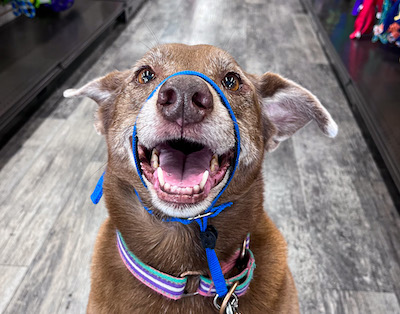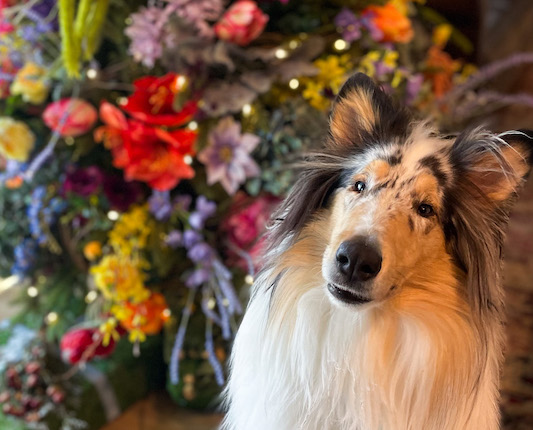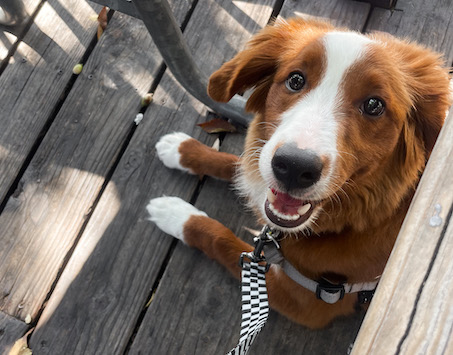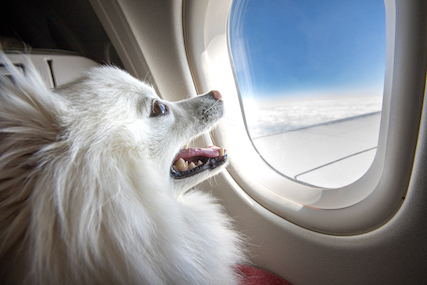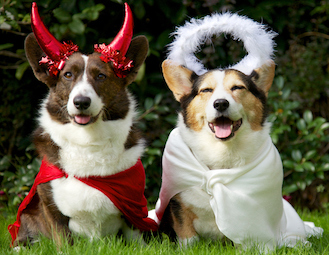Every November we get to celebrate National Senior Pet Awareness Month! This month, we want to highlight our spectacular senior pooches and dispel some common myths about training senior dogs.
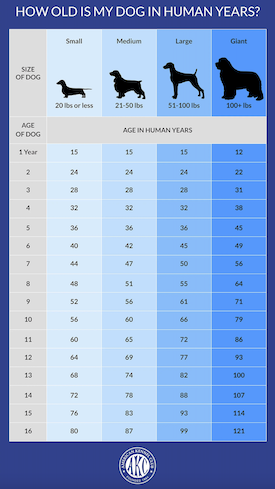
It’s no secret that senior dogs spend more time in shelters than their puppy counterparts. Many people assume senior dogs are in shelters because they are aggressive. However, in most instances, senior dogs end up in a shelter due to the circumstances of the original owner. Common circumstances include the owner relocating, facing financial hardship, or simply passing away.
If you decide to adopt a senior dog or want to change your older dog’s behavior, keep reading.
What is a Senior Dog?
The exact age at which a dog is considered “senior” depends on their size and breed. On average, a dog is considered a “senior” when they reach the age of seven.
Contrary to popular belief, dogs DO NOT age at a rate of seven human years per one dog year. According to a 2020 study published by Cell Systems, dog aging follows a logarithmic law meaning they age more quickly in their younger years.
The American Veterinary Medical Association states that…
- The first year of a medium-sized dog’s life equals 15 human years
- The second year equals about nine human years
- Each following year equals approximately five human years
Now that you know a little more about dog aging, you might be wondering if the classic adage that “an old dog can’t learn new tricks” is really true.
Is My Dog Too Old for Training?
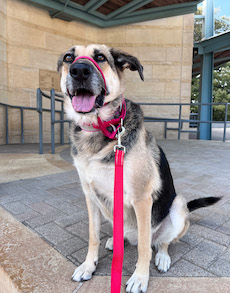
Simply put, no dog is too old for training. Yes, there might be certain challenges to training a senior dog such as physical restrictions. However, it is simply not true that old dogs don’t want to or can’t learn new things. In fact, there are many benefits to adding training to a senior dog’s daily routine.
What are the Benefits of Training Older Dogs?
Just because your dog is older, does not mean they are “retired” from training. In fact, older dogs still love having a job to do plus they still require daily exercise. Training helps keep your dog’s mind stimulated and your dog’s body healthy. It can also help keep cognitive and physical decline at bay.
7 Tips for Training Senior Dogs
Slow Down
When working with puppies, we aim for many quick, repetitions of a command in a short period of time to encourage quick learning. However, too quick repetitions of any command could be painful on an older dog’s joints so we recommend maintaining a slower pace of training. Rather than focusing on getting in as many repetitions as possible, focus on duration-based behaviors and slow repetitions over time. Great duration commands to practice with older dogs include place, down-stay, wait, and leave-it.
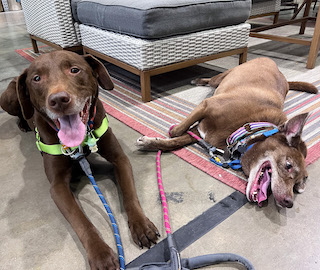
Adjust to Any Physical Limitations
Your senior dog’s senses might not be as sharp as they were years ago. You should adjust your training techniques to the specific needs of your dog. For example, if your dog can’t hear well anymore, train with more hand signals and less verbal cues. If your dog has trouble seeing, rely on verbal cues. If your dog has arthritis, “sit pretty” might not be the best trick. Consider working on less physically demanding commands such as a duration down-stay instead. You want your dog to be as comfortable as possible while training.
Monitor Extreme Weather
Older dogs are more sensitive to extreme weather than younger pups. Keep training sessions indoors as much as possible if it’s very hot or cold outside. In the summer, keep your dog cool by making sure your dog has constant access to water and a cool, shady spot. In the winter, consider getting your dog a sweater or jacket for added warmth as senior dogs can’t tolerate the cold like younger dogs can. In any extreme weather conditions, keep potty breaks and walks short and if you notice any discomfort in your dog, return indoors.
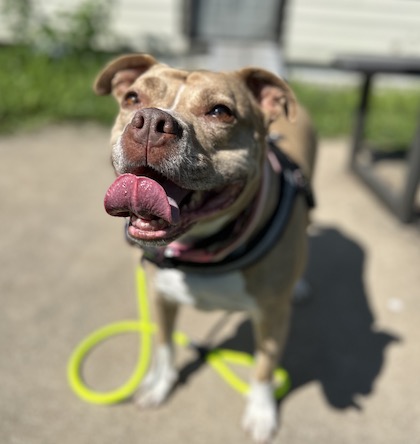
Stick to a Routine
Just like puppies, senior dogs also love routine. Routines help dogs know what to expect in their day-to-day lives. Maybe after your dog’s daily potty breaks, you add a few minutes of training for each command you want to work on together. Your dog will thank you!
Keep Training Sessions Short and Sweet
Senior dogs might not be able to tolerate full-hour training sessions like most younger dogs can. Even adding just a few minutes of training to your dog’s day can have significant benefits.
Don’t Overfeed
A senior dog’s dietary needs are different from those of a growing pup. Consider training with low-calorie treats or little pieces of dog-safe fruits and veggies. Overfeeding your dog can lead to obesity which makes things tougher on an older dog’s joints and can lead to other health issues.
Stay Positive, Patient, and Keep it Fun
Holding a senior dog to the same expectations as you would a 6-month-old puppy is probably not realistic. Although your senior dog might not be able to train for agility competitions anymore, they can certainly learn lots of new, lower-energy tricks. Lots of positive reinforcement is key. Keep praise and rewards high!
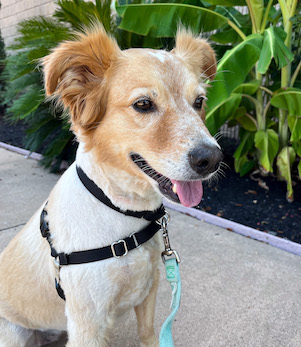
Training your older dog will help keep them healthy and happy in their senior years. Need professional help training your senior dog? Or maybe you just adopted a senior dog and need professional help addressing their reactivity or resource guarding? Led by a Certified Applied Animal Behaviorist, our training team is uniquely qualified to treat any dog behavior. Schedule a free consultation with us today to start your training journey!
